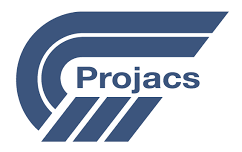
Competency Based Interview and Selection for Hiring Managers
Course ID: 2512017101420EGI
Course Dates : 01/12/25 Course Duration : 5 Studying Day/s Course Location: Dubai, UAE
Language: Bilingual
Course Category: Professional and CPD Training Programs
Course Subcategories: Operations and Process Excellence
Course Certified By: * Projacs Academy
* Professional Training and CPD Programs
Certification Will Be Issued From :
KSA
Course Fees: £2,958.13
Vat Not Included in the price. VAT may vary depending on the country where the course or workshop is held.
Click to Pay
Date has passed please contact us Sales@e-s-hub.com
Course Information
Introduction
The process of hiring the right talent has always been a cornerstone of organizational success, yet it remains one of the most challenging tasks for hiring managers. The advent of competency-based interviewing has revolutionized recruitment by shifting the focus from subjective impressions to objective assessments of candidates’ skills, behaviors, and potential contributions. This course delves into the principles and practices of competency-based interviewing, equipping hiring managers with the tools they need to make informed, data-driven hiring decisions. By aligning interview questions with specific job competencies, organizations can significantly improve the quality of their hires and reduce turnover rates.
A common challenge faced by hiring managers is the inability to accurately predict how well a candidate will perform in a role based on traditional interviews. Studies show that unstructured interviews have a predictive validity of only 14%, while structured competency-based interviews increase this figure to over 50%. This gap underscores the need for a systematic approach that evaluates candidates against predefined criteria. The course addresses this gap by teaching participants how to design and conduct interviews that elicit meaningful insights into a candidate’s capabilities and cultural fit.
One notable example of the impact of competency-based interviewing comes from a global tech company that implemented the method across its recruitment teams. Within six months, the organization reported a 30% reduction in early-stage attrition and a 20% improvement in performance metrics among new hires. Such outcomes highlight the tangible benefits of mastering this methodology—not just for individual hiring managers but for entire organizations striving to build high-performing teams.
The course draws on established frameworks such as the STAR (Situation, Task, Action, Result) technique and behavioral interviewing theories to provide a robust foundation for learning. These methodologies are supported by decades of research demonstrating their effectiveness in predicting future job performance. Additionally, participants will explore industry trends like the rise of remote hiring and the integration of AI-driven assessment tools, ensuring they remain competitive in an evolving landscape.
Participants will also engage with real-world scenarios, such as crafting interview questions for a leadership position or evaluating responses during a panel interview. These exercises not only reinforce theoretical concepts but also prepare learners to handle complex situations they may encounter in their roles. For instance, understanding how to probe deeper when a candidate provides vague answers can be pivotal in uncovering critical information about their suitability for a role.
Ultimately, mastering competency-based interviewing empowers hiring managers to contribute more strategically to their organizations. By fostering fairer, more transparent selection processes, they enhance employer branding and create environments where diverse talents thrive. This course serves as a bridge between theory and practice, enabling participants to elevate their expertise and drive measurable improvements in recruitment outcomes.
Objectives
By attending this course, participants will be able to:
Define the core principles of competency-based interviewing and explain their relevance to modern recruitment practices.
Analyze job descriptions to identify key competencies required for successful performance in various roles.
Design structured interview questions using frameworks such as STAR and behavioral techniques.
Evaluate candidate responses effectively through scoring rubrics and objective criteria.
Implement strategies to mitigate bias and promote inclusivity throughout the interview process.
Apply advanced techniques for assessing soft skills, cultural fit, and leadership potential.
Integrate technology and AI tools into the selection process to enhance efficiency and accuracy.
Who Should Attend?
This course is ideal for:
HR professionals responsible for designing and executing recruitment strategies.
Hiring managers seeking to refine their interviewing skills and improve hiring outcomes.
Recruiters and talent acquisition specialists aiming to stay ahead of industry trends.
Team leaders involved in selecting candidates for specialized roles within their departments.
These groups will find the course valuable due to its emphasis on practical tools and evidence-based approaches that directly address common pain points in recruitment. While no prior experience in competency-based interviewing is required, familiarity with basic HR functions or recruitment processes is recommended. As such, the course caters to both beginners looking to establish a strong foundation and intermediate practitioners aiming to deepen their expertise.
Training Method
• Pre-assessment
• Live group instruction
• Use of real-world examples, case studies and exercises
• Interactive participation and discussion
• Power point presentation, LCD and flip chart
• Group activities and tests
• Each participant receives a 7” Tablet containing a copy of the presentation, slides and handouts
• Post-assessment
Program Support
This program is supported by:
* Interactive discussions
* Role-play
* Case studies and highlight the techniques available to the participants.
Daily Agenda
The course agenda will be as follows:
• Technical Session 08.30-10.00 am
• Coffee Break 10.00-10.15 am
• Technical Session 10.15-12.15 noon
• Coffee Break 12.15-12.45 pm
• Technical Session 12.45-02.30 pm
• Course Ends 02.30 pm
Course Outlines
Foundations of Competency-Based Interviewing
Understanding the evolution and importance of competency-based interviewing.
Key differences between traditional and competency-based methods.
Analyzing job descriptions to extract essential competencies.
Overview of legal compliance and ethical considerations in recruitment.
Day 2:
Designing Effective Interview Questions
Introduction to the STAR technique and its application in interviews.
Crafting open-ended questions aligned with job-specific competencies.
Developing follow-up probes to gather comprehensive insights.
Avoiding common pitfalls in question formulation.
Day 3:
Conducting Structured Interviews
Best practices for setting up and conducting interviews remotely and in-person.
Techniques for active listening and note-taking during interviews.
Managing difficult candidates and handling unexpected challenges.
Ensuring consistency across multiple interviewers or panels.
Day 4:
Evaluating Candidate Responses
Creating scoring rubrics and evaluation criteria for objective decision-making.
Recognizing and addressing unconscious biases in the selection process.
Assessing soft skills, emotional intelligence, and cultural alignment.
Leveraging peer feedback to validate hiring decisions.
Day 5:
Advanced Applications and Future Trends
Incorporating psychometric tests and AI tools into the selection process.
Strategies for building inclusive and diverse talent pipelines.
Adapting competency-based methods for remote and hybrid workforces.
Action planning: Implementing lessons learned in your organization.



















































